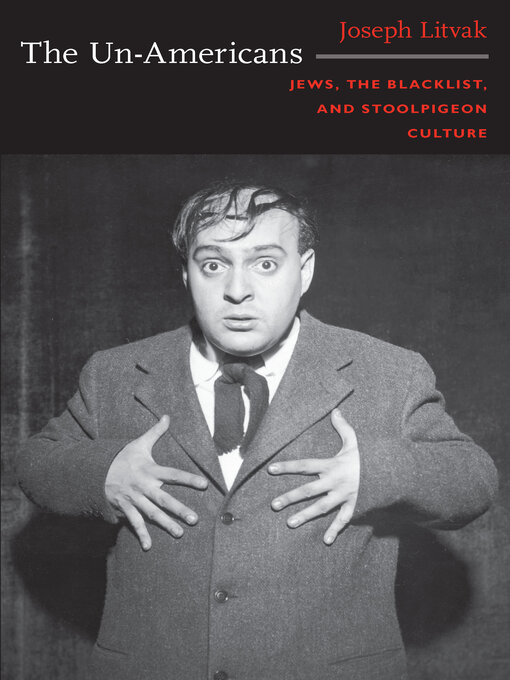Litvak traces the outlines of comic cosmopolitanism in a series of performances in film and theater and before HUAC, performances by Jewish artists and intellectuals such as Zero Mostel, Judy Holliday, and Abraham Polonsky. At the same time, through an uncompromising analysis of work by informers including Jerome Robbins, Elia Kazan, and Budd Schulberg, he explains the triumph of a stoolpigeon culture that still thrives in the America of the early twenty-first century.
- Newly Added eBooks
- Most Popular eBooks
- Try Something Different
- Endgame Education
- Indie Authors
- See all ebooks collections
- Newly Added Audiobooks
- Most Popular Audiobooks
- Try Something Different
- Audiobooks for the Whole Family
- Great Narrators
- See all audiobooks collections
- Favorite Magazine Picks
- Health & Fitness Magazines
- Sports
- Food & Cooking
- Business & Finance
- Crafting
- News
- Magazines are Here
- See all magazines collections
